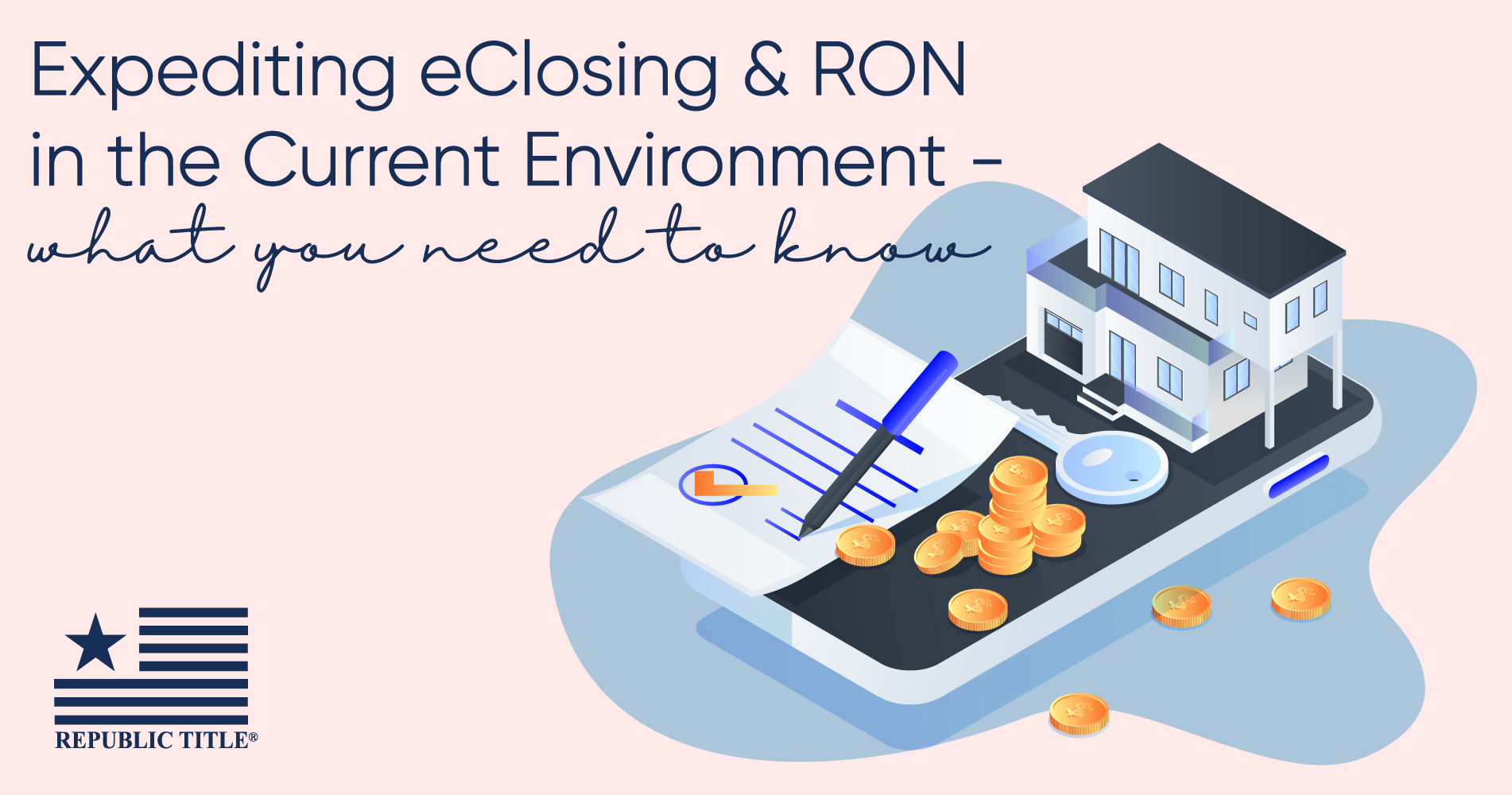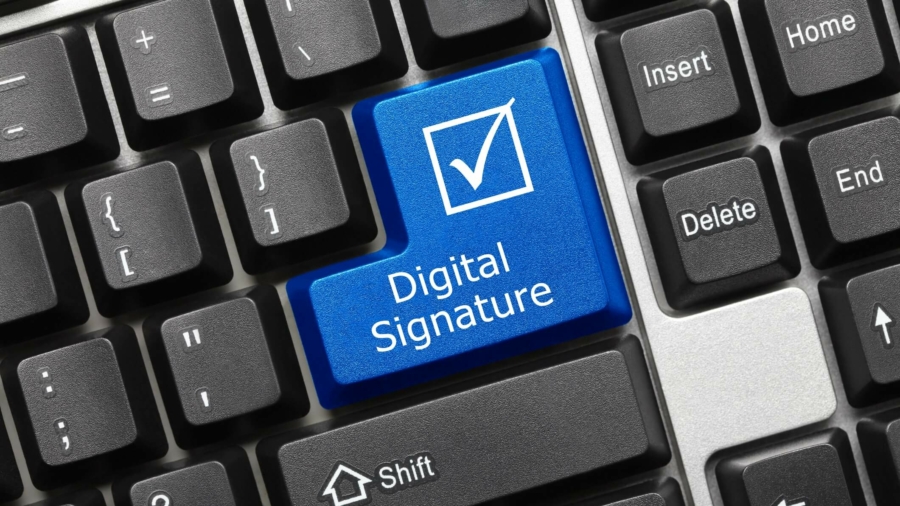Dennis: I originally received a degree in Information and Operations Management (or MIS), which focused on the intersection between technology and business. But my work history centers on real estate, having started my career as a real estate agent and then working across all aspects of a settlement company, eventually finding myself leading the charge for technology at Republic Title of Texas, Inc.
eOriginal: Why is Republic Title of Texas supporting the move toward digital mortgages? What is in it for you?
Dennis: At Republic, we take an “outside-in” approach, meaning that we first consider what is best for our customers, along with their wants and needs. We are starting to see the persona of the consumer change. Gone are the Baby Boomers and in are the Generation Xers and Millennials, who tend to be more comfortable with and have a preference for digital technologies.
Secondly, we consider decisions from a strategic company perspective, ensuring we meet the needs of the market. The market desires a digital buying experience, and frankly, closing is the last piece of the buying process that hasn’t gone digital. There is a lot of pent-up value waiting to be tapped just by digitizing that last element.
eOriginal: You’ve had a lot of experience with digital technologies. Would you mind talking about your early experiences with digital mortgages?
Dennis: I’ve done a number of hybrid closings on smaller platforms that died over the years. In those early days, the promise of digital closings sounded great from a settlement agent’s perspective, but the settlement community did not have the right technology to make it a convenient and positive experience for the consumer.
To paint a picture, consider what a closing with both electronically and wet-signed documents was like 10 years ago. The first part of the closing would go smoothly, but just when the borrower thinks they are finished, they would need to step into another room to complete the eSigning portion with a desktop computer and a large monitor. That’s not just inconvenient for the borrower, it’s also confusing.
But today, with mobile devices and tablets as well as existing wireless technologies, the supporting technology is in place to ensure a smooth digital closing experience. We can offer concierge closing services that match the busy lives of today’s consumers.
eOriginal: You’ve used several digital solutions. What is some advice you can give to mortgage professionals and, more specifically, settlement agents about what to look for in a solution?
Dennis: I’d suggest they first consider what role the technology plays in their day-to-day activities. Is it an entire production system or is it an ancillary supporting system?
I’d also encourage mortgage professionals to consider the steps required to do basic operations in the product. Are there too many manual or redundant steps? Remember – these systems are supposed to make your lives easier.
Finally, I’ve been exposed to vendors in the past who didn’t have a vision for the future. They might have come out with the innovative and exciting capability that was in the news at the time, but they didn’t consider how those capabilities could provide value at scale, or how to augment and grow them in the future. I suggest others in the industry partner with providers that have a solid roadmap, a pulse on the market, and are seeking to find a different and better way.
eOriginal: What barriers do you see to settlement agents supporting digital mortgages?
Dennis: Many people subscribe to the “if it’s not broken, don’t fix it,” philosophy, but sometimes it is about making an existing way of doing things better. To continually be relevant in the market, you have to ask, “Can we make it better? If so, how?” I don’t see enough mortgage professionals focusing on those questions.
There are other barriers directly related to finances. For example, some settlement companies are not set up for high-speed internet, tablets, or laptops. And, finally, there are practical barriers unique to our industry, like legislation and the county clerks’ offices in the areas we serve. For example, we are still waiting on a “papering out” bill in Texas, but once that is in place, many of the existing hurdles to digital closings will begin to disappear.
eOriginal: One thing we hear about in the market is the potential for cost savings with digital. But we often hear about that in reference to lenders and other sectors of the mortgage ecosystem, not the settlement community. Are there potential cost savings for settlement agents?
Dennis: Yes, but I prefer to look beyond cost savings and consider revenue potential. Depending on the size of the operation, there are obvious hard cost savings in the form of paper, toner, and devices for printing. There are also softer savings like operational efficiency. At Republic Title of Texas, the efficiencies gained from adopting digital allow us to free our talented employees to drive growth for our business through new services and new markets. It allows us to access our business’s untapped potential.
eOriginal: We’ve talked about costs and revenue opportunities, but what about broader headaches? Can digital technology help there as well?
Dennis: Lost or misplaced files is certainly one headache that digital addresses. When you are using a digital system, your files and data are in one place, easily accessible. Another headache is in the talent management realm. There are talented people that settlement companies cannot hire because they don’t live near any of their brick-and-mortar locations. Supporting a digital process may open more avenues for finding top talent.
eOriginal: Do you feel the adoption and commitment toward digital mortgage is different now than in times past? If so, how?
Dennis: Thinking back to the early 2000s, we saw interest develop and then, just as quickly, disappear. The feeling is substantially different today. For one, we’ve seen many more digital closings this year than in years past. In fact, MERSCORP Holdings, Inc. recently announced that there were more eNotes registered in the first quarter of 2019 than in all of 2018. A second point to consider is that the ecosystem required to support and sustain the digital mortgage movement is taking shape, certainly much more than it did in those early years.
eOriginal: As we close, do you have any suggestions for settlement agencies considering support for digital mortgages?
Dennis: Be sure to approach moving to digital as a strategic initiative, rather than a one-off project. Think about your overall business strategy and then factor where digital can provide a sustainable impact. Be prepared to fully support and build on digital capabilities, rather than making a one-time investment in the latest technology. A commitment to digital requires more than just technology, it requires building a team of positive, digitally ready employees along with a strong ecosystem of digitally enabled partners.
Source: https://www.eoriginal.com/blog/a-voice-from-the-industry-leading-the-digital-charge-in-settlement/







